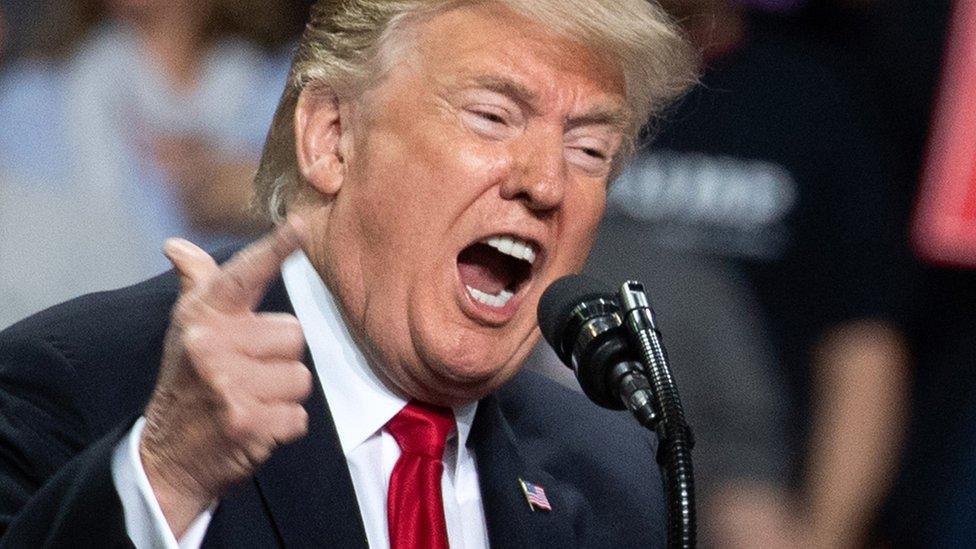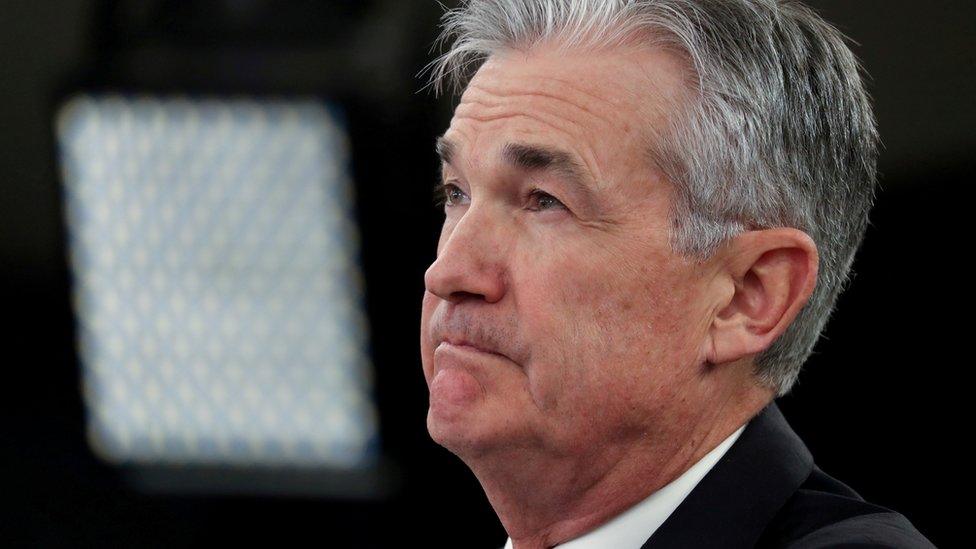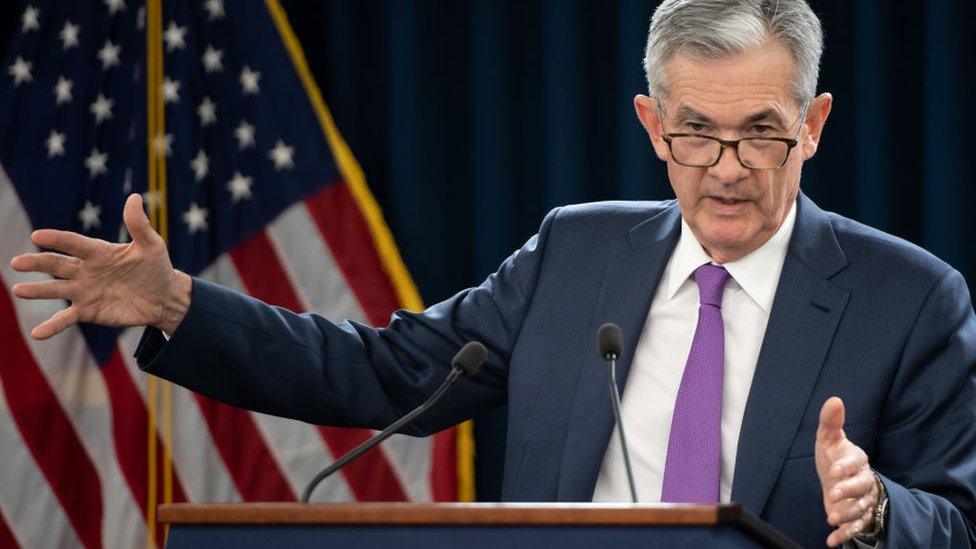Trump urges Fed to help economy 'go up like a rocket'
- Published

President Donald Trump has stepped up his criticism of the US Federal Reserve and called for the central bank to cut interest rates by 1%.
The Fed is set to announce a decision on interest rates on Wednesday following a two-day meeting.
It has already indicated it is unlikely to change rates from the current range of 2.25%-2.5% for the rest of the year.
However, Mr Trump wants the Fed to cut borrowing costs to help the US economy "go up like a rocket".
Recent figures showed that US GDP grew at a faster-than-expected pace of 3.2% in the first quarter of 2019.
Inflation growth slowed to 1.6% in the year to March compared to 1.7% in February, putting it further below the Fed's target of 2% inflation.
Mr Trump, who has attacked the Fed and its chairman Jerome Powell on a number of occasions, tweeted that China was doing well because the government was providing economic stimulus as well as keeping interest rates low.

Allow X content?
This article contains content provided by X. We ask for your permission before anything is loaded, as they may be using cookies and other technologies. You may want to read X’s cookie policy, external and privacy policy, external before accepting. To view this content choose ‘accept and continue’.
Allow X content?
This article contains content provided by X. We ask for your permission before anything is loaded, as they may be using cookies and other technologies. You may want to read X’s cookie policy, external and privacy policy, external before accepting. To view this content choose ‘accept and continue’.

He called for the Fed to restart quantitative easing (QE), a practice where a central bank pumps money into the economy through buying assets such as government bonds.
QE was launched in the US in 2008 amid the financial downturn and the great recession. The Fed stopped it in 2014 and is running down the assets it bought during that time.
Mr Trump nominated Mr Powell as the Fed's chairman and since joining in February last year it has raised interest rates four times, drawing criticism from the president.

US Federal Reserve chairman Jerome Powell
Meanwhile, Stephen Moore, Mr Trump's pick to join the Fed's board of governors, is facing an uphill battle to win a confirmation if he is nominated.
On Tuesday, Republican senator and Trump ally Lindsey Graham said: "It will be a very problematic nomination."
While Joni Ernst, also a Republican senator, said it is "very unlikely that I would support that person".
Another Trump pick, Herman Cain recently withdrew from being nominated to the Fed board, stating that it would mean a pay cut. But prior to that, four Republican senators said they would vote against him.
Mr Moore advised Mr Trump during his presidential campaign and has been critical of the Fed's decision to raise interest rates last year.
He has come under fire for making a number of derogatory comments about women in columns he wrote some years ago.
In one, Mr Moore criticised the practice of allowing a woman to referee a basketball game with male players, remarking: "I see it as an obscenity."
Remarking on his wife's decision to vote for a Democrat in 2000, he said: "Women are sooo malleable! No wonder there's a gender gap."
In an interview with CNBC on Tuesday, external, he said that a drop in male earnings was the biggest problem facing the US economy.
He said: "I want everybody's wages to rise, of course. People are talking about women's earnings. They've risen,"
- Published26 April 2019

- Published20 March 2019
